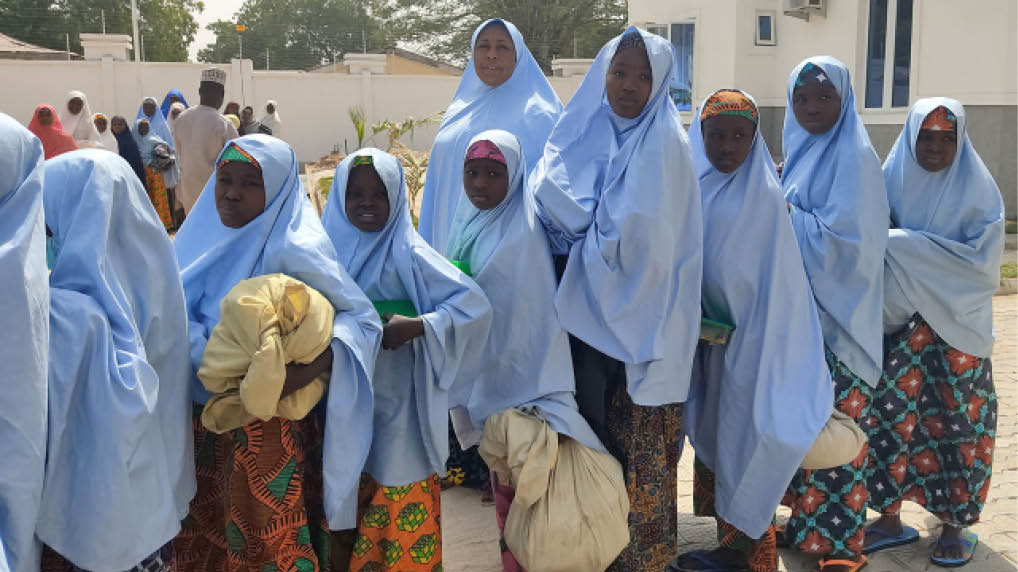Nigeria has since joined other countries to sign the Safe School Declaration with a commitment to uphold its obligations. This is very strategic considering that it is one of the countries battling with the issue of insecurity, which is affecting the education sector.
The country has witnessed a series of attacks not just in public places but across schools especially in the northern region of the country, where thousands of students and teachers have been kidnapped and many killed.
Nigeria alongside Argentina, Norway, Spain and the African Union Commission hosted the Fourth International Conference on the Safe Schools Declaration in October 2021 to galvanize action to protect education from attack
The Safe Schools Declaration (SSD) is an inter-governmental political commitment by states to better protect schools and universities, their students and staff, during armed conflict.
At a CSO Step-Down Training on School Safety, Security and Resilience Systems Building organised by development Research and Projects Centre (dRPC) in collaboration with Education in the Emergencies Working Groups Nigeria (EiEWGN) funded by the Ford Foundation in Abuja recently, Policy and Strategy Adviser for the Global Coalition to Protect Education from attack Abiola Sanusi said the conference focused on the Sahel region including Nigeria because of the increased attacks on education in the West and Central African region.
She explained that among key takeaways from the conference was for countries to have a national plan on how to tackle the issue, “because when you have a national plan on how to protect education from attack, then you have donors, CSOs who can begin to hold government accountable and ask what they are doing to implement.”
“It is very strategic in terms of ensuring that there are prosecutions of perpetrators and also by giving them fair trial as well and we also want to see investigations because we are seeing increased attacks,” she said.
Others she said include, to support the victims of the attacks and looking at the mechanism in place to assist survivors to ensure that their life continued; and looking at the strategies in place to ensure that education continues even when there are armed conflicts and insecurity.
“They should also increase funding for education in emergencies. Every child has a right to education and that should not be stopped because of insecurity and conflicts,” she added.
Communities share experiences on attacks
Participants at the training expressed their grief on the plight of their wards. Those from Katsina, Kebbi, Sokoto and Zamfara unanimously lamented how education in their states has been affected due to attacks and abductions in schools.
Speaking, Abdullahi Maiwada from Zamfara said since some secondary school girls were kidnapped in September, schools have remained shut.
Decrying the poor state of the school environment, he said: “We have over 1500 public schools in Zamfara but only 200 have perimeter fencing, meaning anybody can get in and attack the schools. As long as we leave our schools very porous we are not going to achieve anything.”
For Dr Fatima Adamu, representing Nana Girls and Women Empowerment Initiative in Kebbi and Sokoto states, her concern is about the girls kidnapped from Federal Government College Birnin Yauri.
“Over 50 girls are still in captivity and my organisation is sponsoring five of them in school. We got them from the village after we begged their parents to release them because the girls were very sharp.
“We wanted to make a difference in their village and now one of the girls is still there in captivity.”
She said some of the girls and their parents after their release said they don’t want to go to school any longer because of their experience. They said they would rather marry and be in peace. This will definitely affect the educational indices of the state.
“We made an attempt to have a press conference and we were dispersed by security agents; we are powerless, we are voiceless. Our girls are still there because those recently released were only boys. They did not release the girls and this is the fourth time.”
“We are appealing to the government to listen and take it seriously. A member of my family is also in captivity. We are pleading with the government to at least take it seriously. What we are asking for is an occasional briefing of what the government is doing; we are not getting that.
On his part, a traditional ruler from Sokoto, the Sarkin Gagi, Alhaji Sani Umar Jibril, said most of the schools today do not have a favourable learning environment.
“Many are not fenced and equipped with education emergency equipment to evacuate students when something happens. Not even trained teachers and school management committee knowledgeable on the best way to protect and take ownership of schools.”
While noting that the burden is too much on the government alone, he said there is a need for the engagement of others.
He noted that there used to be a negative perception that anything that comes from development partners is the ideology of the western world against our religion and culture.
“But that has been overturned by selecting traditional and religious leaders from northern Nigeria and other parts of the country for international and national training.”
“We share experiences and we learn more from the different countries and narrow it to our country. We mobilize more of our subjects today to support policies and programmes that have a direct bearing on the improvement of the quality of life of the citizens of the country,” he said.
He further said: “In Sokoto, two laws are being domesticated and being put to practice – VAPP Act and Child Right Act. It has been a tug of war in northern Nigeria because people did not accept it.
“But today, with vast experience and having a better understanding of religion and tradition, those laws have since been passed into law in Sokoto and they are working.”
He said with the leadership by dRPC and partnership with CSOs, community leaders could ensure the protection of schools and access to education, retention and completion of school for the girl child alongside the males in Nigerian schools.
He maintained that the dRPC training is aimed at equipping them to take over ownership and also look into government policies and financing toward making schools safer and protecting children from any form of abuse or abduction.
Why stakeholders need to be trained
Also speaking, the Director Partnership and Communication at dRPC, Hassan Aliyu Karofi, said the partnership with the CSOs is aimed at bringing together the stakeholders to discuss the current safe school initiative.
“We all know that with the insecurity around, especially in northern Nigeria and other parts of the country, education is getting retarded by the actions and activities of bandits and kidnappers,” he said.
He stressed that northern Nigeria, which has been behind in terms of education, is now critically facing a greater dilemma due to attacks on schools.
He said the collaboration with UNICEF and EiEWGN will bring CSOs across Nigeria and stakeholders from the government side to discuss the way out.
Karofi said: “This is a critical situation that we all need to sit and discuss and find a solution to it and that is what the dRPC is doing with the support of the Ford Foundation in the training and workshop so that we can with one voice continue talking and pressuring the government to do the right thing.”
For Mrs. Judith Giwa Amu, National Coordinator of EiEWGN, increased attacks on education has emphasised the need for the duty bearers to make adequate arrangements to make sure that children can fulfil their rights to education.
Amu, who is also UNICEF Education Officer, noted that some strategies can be used to ensure that attacks don’t happen or if they happen they are reduced to the minimum.
She said the training is majored on emergency preparedness and response, which are measures taken in advance to ensure that attacks or the impact of attacks can be totally avoided or to respond in case for instance attack.
“But then we look at things like early warning systems, information management and communication; these that you can put under-preparedness because they can avert any attack,” she said.
According to the education officer, they are identifying the CSOs because of their unique roles to watch governments and monitor how funds are released or captured in the budget and what they are used for.
She stressed that there are many things that can be done in the school environment, like perimeter fencing, alarms, training of security men, and working with security at the community level, getting some kind of intelligence and sharing with those that know so that they can collaboratively work to protect children and encourage their education.
“Then we need to make sure that the environment is conducive, not just the physical environment, but the psychological environment and that children are happy to go to school.
“So, bearing in mind all those things, how do we factor violence, conflicts, attacks, not just attack on teachers, but the child, the environment and infrastructure, how do we protect them. So the CSOs have been recognised to have the role, they are like watchdogs in the community,” she stated.
In his remark, the Permanent Secretary, Sonny Echono, represented by Mr Uchenna Uchenna said the training will increase the knowledge of CSOs on the safe schools declaration outcomes for further transfer to communities to support and mount advocacy to state governments and SUBEB for SSD scale-up.
He said the diversity of organisations that constitutes CSOs should be seen as an asset as it brings with it a wealth of characteristics and strengths as well as varying levels of experience to strengthen citizens’ confidence.

 Join Daily Trust WhatsApp Community For Quick Access To News and Happenings Around You.
Join Daily Trust WhatsApp Community For Quick Access To News and Happenings Around You.


